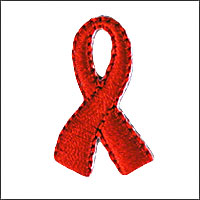
- Eat a well-balanced diet: good nutrition plays an important part in resisting disease· Exercise in moderation, to the extent that you can·
- Be vaccinated against pneumococcal pneumonia, as well as against viral influenza, which can sometimes lead to pneumonia. (Public-health authorities recommend that children with AIDS or positive HIV tests should receive all the standard childhood vaccines, except that they should be given injected polio vaccine instead of the oral type.)
- Faithfully follow any medical advice you have received, whether for treatment or for disease prevention. If you have questions about medications or other matters, ask your doctor.
What are the different stages of HIV?:
HIV causes disease by the progressive destruction of the immune cells which it infects. These are the CD4 cells which are central to maintaining and measuring a healthy immune system. Without a strong immune system, we become vulnerable to opportunistic infections and cancers which normally we could fight off easily.
We call these infections ‘opportunistic’ because HIV gives these germs an opportunity to cause disease.
The 5 stages of HIV disease:
1.Primary HIV infection
2.The asymptomatic or ‘silent’ stage
3.Early HIV symptomatic disease
4.Medium-stage HIV symptomatic disease
5.Late-stage HIV symptomatic disease (AIDS).
PRIMARY HIV INFECTION
This happens within a few weeks of HIV infection and is the time when people sero-convert on their blood test for HIV – in other words, change from being HIV negative to HIV positive.
About half of people infected will develop a flu-like illness with fever, sore throat, swollen glands, headache, muscle aches and sometimes a rash. This stage of HIV disease lasts only a week or two – after this, you return to feeling and looking completely well.
THE ASYMPTOMATIC OR ‘SILENT’ STAGE
After recovery from the primary HIV illness, people infected with HIV continue to be completely well for long periods, often for many years. During this time, the only indication that you are infected with HIV is that you will test positive on standard HIV tests and you may have swollen lymph glands.
This means that you look and feel healthy and can easily infect other people through unprotected sex – especially if you do not know that you are infected.
But HIV is still very active and is continuing to destroy the immune system at this stage.
EARLY HIV SYMPTOMATIC DISEASE
Several years after infection, some people will begin to show mild symptoms of HIV disease. These can include:
Shingles
Swollen lymph glands
Occasional fevers
Mild skin irritations and rashes
Fungal skin and nail infections
Mouth ulcers
Chest infections
Weight loss.
MEDIUM-STAGE HIV SYMPTOMATIC DISEASE
This stage of HIV disease was once known as ‘AIDS-related complex’. This is when people with HIV can become quite ill without developing the ‘AIDS-defining illnesses’. Typical problems include:
Tuberculosis
Recurrent oral or vaginal thrush (a fungal rash or spots)
Recurrent herpes blisters on the mouth (‘cold sores’) or genitals
Ongoing fevers
Persistent diarrhoea
Significant weight loss (more than 10%).
LATE-STAGE HIV DISEASE (AIDS)
Without effective treatment, the long-term damage caused to the immune system by HIV results in severe opportunistic infections, cancers and HIV-related damage to other organs (eg the brain). This stage is usually called ‘AIDS’.
People with severe HIV disease can experience many illnesses at the same time. Many of these infections can be prevented with antibiotic treatment if you test and become aware of your HIV status at an earlier stage. These AIDS-defining illnesses include:
Severe diarrhoea
Severe weight loss
Severe pneumonia
Brain infections
Confusion and memory loss
Severe skin rashes
Pain and difficulty swallowing.
Summary of the stages of HIV:
PRIMARY HIV INFECTION: Flu-like illness HIV test becomes positive
SILENT STAGE:People look and feel healthy. Swollen lymph glands.HIV still active
EARLY HIV SYMPTOMATIC DISEASE: Shingles; occasional fevers; mild skin irritations and rashes; weight loss.
MEDIUM-STAGE HIV SYMPTOMATIC DISEASE:Tuberculosis, oral or vaginal thrush;‘cold sores’ or genital herpes; ongoing fevers; diarrhoea and weight loss.
LATE-STAGE HIV DISEASE (USUALLY CALLED AIDS)Severe diarrhoea.Severe weight loss. Severe pneumonia. Brain infections. Confusion and memory loss. Severe skin rashes. Pain and difficulty swallowing.
References -
http://www.kalrahospital.net/aids-awareness.html
http://www.alp.org.za/modules.php?op=modload&name=News&file=article&sid=14



No comments:
Post a Comment